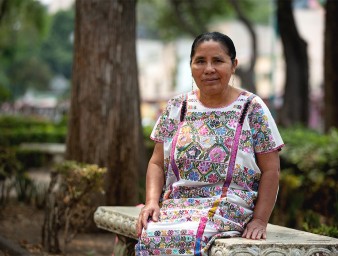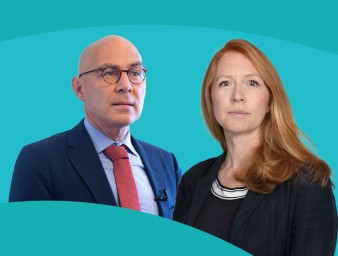Putting a stop to hate speech in Kosovo*
06 February 2024

Hate speech has become one of the most prevalent ways of spreading divisive rhetoric, especially through digital technologies, according to the UN Strategy on Hate Speech.
As part of the United Nations Mission in Kosovo’s (UNMIK) regular monitoring of instances of hate speech and incitement on social media in Kosovo, the rise in hate speech has been an issue of concern for some time.
What is considered hate speech? According to the Strategy, hate speech is “any kind of communication in speech, writing or behavior, that attacks or uses pejorative or discriminatory language with reference to a person or a group on the basis of who they are, in other words, based on their religion, ethnicity, nationality, race, color, descent, gender or other identity factor.”
As a way for the government of Kosovo to be more equipped to detect discrimination and end hate speech for good, UNMIK, UN Human Rights, and the Council of Europe (CoE), in collaboration with the Office for Good Governance, Human Rights, Equal Opportunities and Non-Discrimination within the Office of the Prime Minister of Kosovo, created a two-phase project that has been training municipal officials and municipalities in Kosovo to do just that.
The project entitled “Promoting human rights and non-discrimination principles at the local level” has so far trained and strengthened the data collection, monitoring, and reporting skills of 97 anti-discrimination officers from 27 municipalities across all 5 regions of Kosovo to increase reporting to central institutions. It focuses on strengthening the reporting lines and interactions between municipal anti-discrimination officers and central institutions, which has fostered the establishment of a more integrated human rights architecture in Kosovo.
“Strengthening the monitoring and reporting of discrimination is key and supports the effective implementation of the existing Law on the Protection from Discrimination,” said Jerome Bouyjou, the Representative of the High Commissioner for Human Rights and Chief of the UNMIK Human Rights Office.
To address discrimination, the project has contributed to the preparation of the government of Kosovo’s Annual Report on Protection from Discrimination by holding the first drafting session. They further enrolled 44 municipal, ministerial officials, Justice Academy, Agency for Free Legal Aid, and civil society representatives in the new Human Rights Education for Legal Professionals (HELP) Platform course on non-discrimination. Small grants have been awarded to eight local CSOs for awareness-raising, a research paper, and human rights education.
“
I believe that [the project] will be useful in our work in protection against discrimination.
“
Lindita Kozmaci Piraj, Anti-Discrimination Officer, Municipality of Dragash/Dragaš, Kosovo
While the HELP Platform course on non-discrimination that was launched earlier in the project will be made available again, the HELP Platform course on hate speech, which is aligned with the relevant local laws and case law, is expected to be made available in Spring 2024.
Bouyjou said that “an example of the impact will be seen in the coming Office for Good Governance Annual Report on Protection from Discrimination, which will utilise the 42 indicators on discrimination that were developed as part of this initiative.”
During the training, participants were able to share stories about discrimination issues and challenges, and also found the training to have a lasting impact.
“As human rights officers at the local, we give our utmost to protect human rights at the local level,” said Nazmije Demolli Kastrati, Anti-Discrimination Officer, Municipality of Kamenicë/Kamenica. “The project allows Kosovo to have an effective mechanism to solve issues of discrimination.”
Habit Hajredini, Director of the Office for Good Governance, Human Rights, Equal Opportunities and Non-Discrimination within the Office of the Prime Minister led some of the trainings.
“This [project] is very important for us and at the appropriate time to enrich the human rights framework,” he said. “More interaction with the High Commissioner on Human Rights will add to the quality and structure of dealing with human rights issues.”
*All references to Kosovo should be understood to be in the context of United Nations Security Council resolution 1244 (1999).



